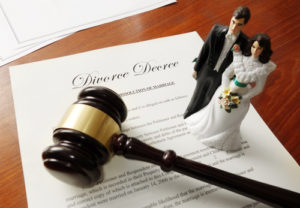
Modern laws about divorce have become much more accepting than in the past when it was considered a sin to separate from your spouse. “No fault” divorces can be granted in any state. These types of divorces occur when the spouse requesting a divorce isn’t required to prove that the other party was at fault or wrong in some way. The spouse simply needs to list a reason for divorce that is recognized by the state. Most states accept irreconcilable differences, incompatibility or irremediable breakdown of the marriage as grounds for divorce. Some states do require the two parties to live separately for a period of time before they can file for a no-fault divorce.
Fault divorce, on the other hand, happens when one spouse files for divorce on the grounds of fault. Only certain states allow fault divorces on the grounds of cruelty, desertion, confinement in prison, adultery or physical inability to be intimate when not disclosed before marriage. Some people choose to pursue a fault divorce because they don’t want to wait out the separation period required by their state for a no-fault divorce. Others want a fault divorce because they may receive a larger share of the marital property or financial support. The other spouse cannot object to the request for a divorce, but they can convince the court that they are not at fault. Common defenses include condonation, connivance, collusion or provocation.
To file for a divorce, a spouse must be a resident of the state for a period of time. While Alaska, Washington, and South Dakota lack a statutory requirement for residency, all other states require one spouse to have been a resident for at least six months.
Our compassionate professionals at Nitti & Nitti Attorneys at Law understand how overwhelming divorce can be both financially and emotionally. With an incredible thirty years of experience, you can feel confident that our lawyers know how to seek the best possible outcome in your divorce proceedings. Reach out to our lawyers now at 973-226-4141 or via our online contact form to get started today.
The articles on this blog are for informative purposes only and are no substitute for legal advice or an attorney/client relationship. If you are seeking legal advice, please contact our law firm directly.
